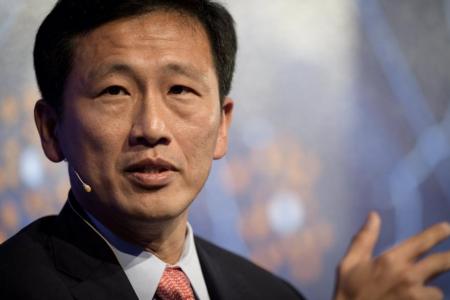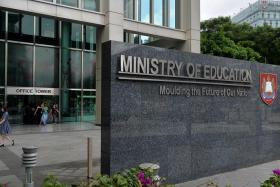SUSS has what it takes to champion lifelong learning
University offers quality adult education, useful industry tie-ups and strong social focus
A significant piece of the higher education puzzle fell into place yesterday, when Singapore officially welcomed its sixth university - an institution very unlike the other five.
With its background in adult education and its partnerships with industry, the Singapore University of Social Sciences (SUSS) will be a champion of lifelong learning.
Previously called SIM University, SUSS will be "clearly differentiated" from the other universities, said Minister for Education (Higher Education and Skills) Ong Ye Kung in Parliament yesterday.
Setting out the backdrop against which SUSS was brought under the ambit of his ministry, Mr Ong said the Government would stick by its pledge to raise the university participation rate of each age group to 40 per cent by 2020.
This would be a further rise from the current situation, when MOE expects to admit about 15,900 Singaporean students into publicly-funded universities in August, with a cohort participation rate of about 35 per cent.
But he stressed that the ability to keep pace with the economy's needs, and not just a degree, is "what helps a person earn a living".
At a time when information could be Googled, he said, "skills are what carry a premium, and skills need to be honed throughout our lifetime".
This played directly to the strengths of SUSS which, Mr Ong said, has been providing quality education to adult learners for years.
Many of them had to juggle studies with other commitments.
The university used technology to deliver its programmes to students. The change in its status could take it to another level.
SUSS would be able to expand its annual intake of full-time degree students from 580 to 1,000 in a few years, its president, Professor Cheong Hee Kiat, told The Straits Times.
It would also increase offerings for its 13,200 part-time students.
As a publicly-funded university, SUSS will also be able to tap on more resources from the Government which, in turn, will guide its strategic development to meet national objectives in education.
SUSS would also set itself apart through its strong social focus. It would build a niche in fields such as early childhood education. All its full-time students would also have to execute a social project and champion a cause.
Unlike most other universities, SUSS would develop the applied degree pathway, said Mr Ong. It would also work with SkillsFuture Singapore Agency to develop courses to support industry.
This will complement the work of the Singapore Institute of Technology, which focuses on applied degrees in science and technology.
There will be strong inter-lacing of theoretical knowledge with real-life application, said Mr Ong.
Ten MPs spoke on the subject, with most welcoming the initiative.
Ms Denise Phua, a Member of Parliament for Jalan Besar GRC who heads the Government Parliamentary Committee for Education, said that at a time when most tertiary institutions are catching up in online and blended learning, SUSS is already way ahead in digital education and catering to a learner population in a fast-paced work setting.
"SUSS presents an exciting opportunity to paint and deliver the vision of what future learning for Singapore's working adults can be," she said.
FOR MORE, READ THE STRAITS TIMES TODAY
Snippets
More dental attendances
Dental attendances at polyclinics went up from 149,000 in 2013 to 179,000 last year. There were also more than 500,000 subsidised attendances at the 700 dental clinics under the Community Health Assist Scheme.
The Health Ministry will be building more dental facilities in new polyclinics and expanding facilities in existing polyclinics.
Getting food outlets to adopt digital technologies
One in five food and beverage (F&B) outlets, or about 1,400 establishments, has adopted digital solutions to improve productivity. The target is for half of all F&B outlets to adopt digital solutions by 2020.
The take-up rate has been slow due to habit, cost of adoption and lack of inter-operability, said Senior Minister of State for Trade and Industry Sim Ann, adding that there are initiatives to address these challenges.
132 food outlets suspended after hygiene lapses
The National Environment Agency (NEA) conducted 148,000 inspections of food premises last year and took enforcement action against 3,200 of them. Common infringements included failing to register food handlers, selling unclean food and failing to keep premises clean.
Of these, 132 food outlets' licences were suspended, compared with 137 suspensions in 2015.
Most breaches of public entertainment licences minor
There were over 600 breaches of public entertainment licences last year, but 90 per cent of these were minor. Major breaches included overcrowding. Minor offences included failing to maintain a proper record of all employees.
The Public Entertainments and Meetings (Amendment) Bill was passed yesterday, with public entertainment outlets such as nightclubs set to have tighter regulations to prevent "unsuitable persons or businesses" from operating them. Errant establishments will face tougher penalties.
Get The New Paper on your phone with the free TNP app. Download from the Apple App Store or Google Play Store now



